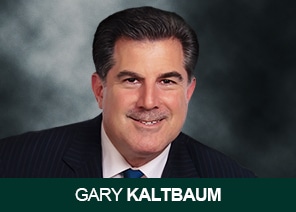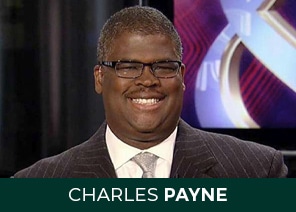Social security, as much as we might gripe about it, is still the financial foundation in retirement for well over 98% of all Americans, and probably YOU. For most people, retirement income planning begins with social security benefits as the main pillar….Which is why people worry about Social Security going broke! But should they really be worried? Mainly, should YOU? Let’s find out!

There are several “Myths” about Social Security that may not be totally untrue, but may also may be exaggerated a bit by many political writers. Here are five of those myths, with background and insight:
Myth No. 1:
Social Security is running out of money and will go completely broke soon. Ok, there is both good news and bad news here, but it is not as bad as it could be! True the trust fund will run out at some point, but money from workers will still be coming in. Here’s a fact you need to know: The Social Security trust funds have been running a surplus in every year since 1982. Surpluses are likely to stop around 2019, at which point the Social Security system can rely on incoming interest payments to make up the deficit — for a while.
According to several government estimates, Social Security funds are likely to be depleted by 2034 — if no changes are made. If that happens, payment checks won’t disappear, but they’ll likely shrink by approximately 25%, leaving income recipients with about 75% of what they were expecting. That’s better than zero– but the more affluent you are, the more you should be worried about the benefit being cut via “means testing.” Means testing refers to the idea that the more wealthy Americans will see their benefits cut due to being “too successful.”

Many people fear that capitalism will give way to European socialism over time as the voting majority gets more liberal, and more in need of government support.
Of course, there’s a chance that the system will be shored up, one way or another. There are many possible fixes, though politicians don’t agree on them, and by the looks of things might never agree! For example, fully 77% of the trust funds’ shortfall could be eliminated by increasing the Social Security tax rate for employers and employees from its current 6.2% to 7.2% in 2022 and 8.2% in 2052. Which politician is ready to step up and raise taxes?
If you said Elizabeth Warren you would probably be correct, but even if she becomes president, Congress has to answer to its constituents. Tax hikes on the sensitive social security issue are not truly likely until a crisis emerges.
Congress rarely agrees on anything unless there is a huge crash, like 2008, or a terror strike like 9-11.
The odds are not good that a “Spartacus Moment” will overtake a highly influential senator who pushes to overhaul Social Security. Nobody on the Hill wants to risk their political career over that idea.
BUT the odds are good that taxes COULD be raised on Social Security benefits for more affluent Americans. On a likelihood scale, means testing to soak the so-called “rich” could become very popular once Democrats find their way back into power, which like it or hate it, is inevitable.
Myth No. 2:
“The money you pay into the system is the money you receive from it later.” Some people assume that when money is removed from their paycheck, it goes into an account expressly for them — growing in value over time to provide them with income for retirement. Obviously, that’s not true. Your money is pooled. The taxes from all the paychecks of people currently working are pooled and then paid out to retirees collecting their benefits.

So your contributions are supporting others, and when you retire your benefits will come from the earnings of those working. That has been a great system for a long time, but now there are cracks in the foundation. A) People are living longer and collecting benefits for more years. B) There are fewer workers supporting a growing number of retirees. Back in 1960, the contributing-workers-to-beneficiaries ratio was 5 to 1, with about 73 million workers supporting close to 14 million beneficiaries.

As of 2013, it was just 2.8 workers for every recipient (with 163 million workers supporting 57 million beneficiaries) — and it’s expected to hit 2.1 by 2035, when the system will be out of reserves. These factors are stressing the system, making eventual changes to it probable—but once again it may be the usual fix: management by crisis. Politicians always have more courage during emergencies and chaos when no one can be blamed..
Which brings us to Myth No. 3:
“Everyone contributes equally to Social Security.” We know that’s not true because many people in the United States don’t pay federal taxes because they make under $45,000 a year. They may be paying into FICA at the same tax rate for Social Security — but it’s only up to a certain capped annual earnings amount. As of 2018, the new cap is $132,900. Thus, someone earning $132,900 in 2018 and someone earning $5 million will pay the same Social Security tax — a fact that many see as unfair, especially on the left side of the aisle. Which is why you must consider it a strong possibility if the Democrats control the executive office and both houses of Congress one day.
Myth No. 4:
“The Social Security benefits you receive are based on your last 10 years of income.” Here’s the deal: your benefits are based on the income you earned in your 35 highest-earning working years (adjusted for inflation). The rules do require you to accumulate 40 work credits in order to qualify for benefits, however, which is typically achieved in 10 years. If you’ve only worked 30 years, the formula will include five years’ worth of zeroes, which will give you smaller benefit checks than if you’d worked for 35 years.

If you work for more than 35 years, your lowest-earning years will be dropped, so working a little longer can be a way to boost your benefits—and perhaps the best way. There are very few fancy claiming strategies left. Building a bigger social security base for the higher earner makes sense because one day, the surviving spouse will have only the larger social security income to draw from.
Myth No. 5:
“Social Security is designed to replace MOST of your pre-retirement income…. ”
Nope, this one is not true at all. According to the Social Security Administration, retirement benefits for those with average earnings will likely replace about 40% of your pre-retirement earnings, give or take. Those who had above-average earnings in their working years can expect a lower replacement rate, and vice versa. The average monthly retirement benefit was recently $1,364 dollars per month, which amounts to $16,368 per year.
If your earnings have been above average, though, you’ll collect more than that — up to the maximum monthly Social Security benefit for those retiring at their full retirement age, which was recently $2,687 dollars, or about $32,000 for the whole year.
So, if you are spending $5,000 to $10,000 a month, you are going to need to get more income from somewhere. The problem, bond funds are now risky, as is the stock market. Should you consider an annuity to supplement your Social Security? Many people are doing just that. Because pensions are fewer and farther between than ever, many engineers, teachers, business owners, and professionals are converting part of their 401(k) rollovers into qualified lifetime income annuities within their IRA rollovers.
The Ultimate Social Security Question: “Should you start taking it early, or wait until the income hits the max?”

Here’s the problem: pushing benefits out to age 70 will result in higher income, but you will lose access to the money for those years and if you pass away in your 70s, it’s a loser. No matter what your thoughts are about social security, it is a key to retirement income planning and will figure prominently in your lifetime financial plan. Is it wise to create extra streams of safe guaranteed income for life? With all of the risks we’ve talked about in this blog, the answer is a very logical, unemotional yes.
If you would like professional help with Social Security and retirement income planning, we invite you to contact us at IQ Wealth Management.

Steve Jurich is an Accredited Investment Fiduciary®, a Kiplinger contributor, and the host of the popular retirement radio show “Mastering Money” in Phoenix Arizona. His firm, IQ Wealth Management in Scottsdale, is a registered investment adviser.











